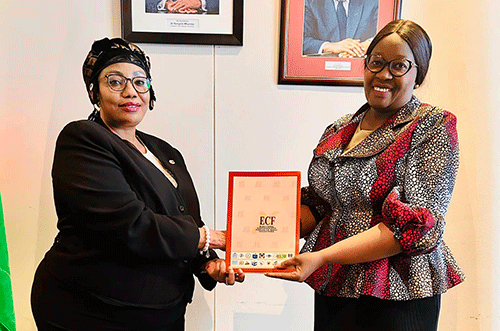Rudolf Gaiseb
The Electoral Commission of Namibia (ECN) has expressed confidence and readiness to deliver credible elections in November, despite the challenges faced so far.
This was stated by the Pre-Election Assessment Mission of the Electoral Commissions Forum of Southern African Development Community countries (ECF-SADC) at an engagement with the commission from 16 to 20 September 2024.
“In spite of the challenges faced, the ECN expressed its readiness to deliver credible elections,” chairperson of the Zimbabwe Electoral Commission Justice Chigumba said.
In their debriefing statement, the Mission stated: “In its engagement with the ECN, the Mission was guided by questions around whether Namibia has put in place technical and procedural improvements to indicate lessons learnt from the previous elections, whether the ECN has improved its outreach to stakeholders to promote inclusive elections, and the general readiness of the ECN to deliver credible and transparent elections”.
ECN spokesperson Mulauli Siluka asserted that ECN has achieved 100% of the activities outlined in the electoral calendar.
“We have successfully conducted the general registration of voters, with 90% of eligible voters who have registered. We have also successfully conducted the voter and civic education campaign for the general registration of voters. We are now in the second phase of the campaign, which is focussing on enticing the public… to then go out and vote,” he asserted.
He outlined that the commission has successfully integrated the voter identification and verification module into its integrated mobile voter registration system.
The system will be deployed during the polling to verify and identify the voters.
“We have conducted the mock voter verification exercise to test its real-time functionality, and it was a success. The commission has also engaged with all key electoral stakeholders: political parties and registered organisations, civil society organisations, and the Council of Churches in Namibia.
“We have also engaged with the media, and we continue to engage with all our stakeholders to ensure that we are all on the same page as we expedite the process,” he added.
Concurrently, the commission lamented the delay in the finalisation of the Electoral Amendment 2 Bill and the High Court judgement on the de-registration of the NEFF.
“One of the notable challenges we faced this year was the delay in the finalisation of the national population and housing census for 2023. The preliminary national population statistics were only released on 15 March. We then saw the commission increasing the number of registration points, as well as
the number of teams to the registration. In order to ensure that the general registration of voters was successfully conducted, the commission had to establish about 110 extra registration points,” ECN said.
Siluka highlighted the delays in the appointment of the Demarcation and Delimitation Commission, which has an impact on the implementation of electoral processes.
“In preparation for the buildup to the 2025 regional and local authority elections, it was vital for us to have that information in order to prepare,” he said.
Another critical issue hindering ECN’s progress is the increased abuse of social media, misinformation and disinformation in relation to the 2024 elections.
He said the commission has released 13 press statements to diffuse and counter misinformation and disinformation since January.
They recognised taking into consideration the recommendations that the ECF-SADC observer mission made in 2019, which include the establishment of a formal communication platform between ECN and its stakeholders, particularly the civil society organisations sector, including youth organisations, and to strengthen voter education initiatives.



